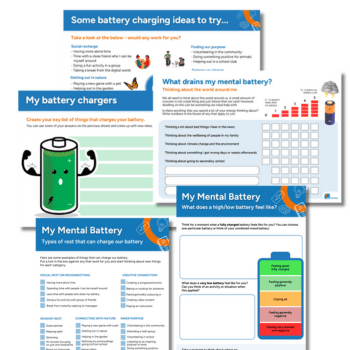Teacher workload – We can’t expect stressed-out teachers to teach well

Given the heavy workloads and distressing situations that can come with the job, let’s rethink the emotional expectations made of teachers, says Billie Krstovic…

- by Billie Krstovic
- Head of social sciences and a teacher of psychology and meditation Visit website

For the best part of two decades I’ve talked to students and teachers about what makes them stressed, and explored how stress affects teachers’ ability to do their jobs.
When asked about their state of mind just before we embark on wellbeing sessions, I find that most teachers will report experiencing some form of emotional overload. Anger, frustration, fatigue and instances of low mood are all common responses. Some report frequent illness, while others cite occasional panic attacks. The majority will regularly report feeling overwhelmed and unable to ‘switch off’, and often point to constant worries about their ability to manage mounting workloads.
Switching off
During one meditation session, a teacher once told me she had no faith in her ability to ‘switch off’. She had too many chores that she was unable to complete on time and couldn’t stop thinking about them – but was later pleasantly surprised when she managed to relax for a few fragile minutes.
Afterwards, however, she felt guilty for spending that brief amount of time on self-care and ended up rushing around, trying to catch up on her prep while convinced that she’d fail at what she was hoping to teach the following day.
According to the 2014 Emotions and Learning study carried out by the International Academy of Education, ‘The emotions that the teacher experiences and displays in the classroom can have profound effects on the emotions experienced by student’ – which in this context means positive and negative emotions.
On another occasion, a male teacher disclosed to me that stress among his students was starting to affect him too, further adding to pressures he was already under. Though widely considered within the school to be a talented and effective teacher, he told me he didn’t agree, since his inability to consistently manage his stress levels was affecting the quality of his work – to the point that he never felt he was doing his best in the classroom.
Education settings are populated by sensitive, emotional learners undergoing accelerated physical, mental, emotional and intellectual development, and run by professional educators who are expected to be in total control of students’ teaching, learning and behaviours – as well as their own emotions.
While entrusted with the complexities of the learning process and pastoral care, teachers are also somehow expected to place themselves outside of innately human emotional behaviours as part of the job description. This isn’t always possible, and it’s not sustainable to pretend that it is.
Professional support
I remember walking into my classroom one day to find an ECT in a state of considerable distress, waiting to talk to me. She wanted to know how it was that school teachers had no support at their place of work equivalent to that available to nurses, police offers and other professionals regularly dealing with individuals in personal and sometimes distressing situations.
She went on to explain that a student had disclosed to her some sensitive information that affected her deeply, but was unable to share the details with anyone aside from the school’s safeguarding lead, since it was a confidential matter.
She’d been effectively left to deal with the issue alone, and was feeling ashamed at not being able to cope. She doubted her ability to teach her next lesson, and was even beginning to doubt her ability to continue in the job.
As a society, we’ve long recognised and normalised the notion that certain professionals will require extra emotional support as a routine part of their working lives. Teachers, however, have somehow missed out on this. If teachers are to continue contributing their lion’s share of service to society and teach to their full potential, these unrealistic expectations of emotionally unshakable professionals with no need for support has to be re-examined.
The lack of existing research and insight into specific links between stress and teaching thus far hasn’t helped. The profession needs something powerful to be provided – and it’s not ‘a cake at half term…’
Readers interested in taking part in further research relating to this topic can help me by completing a short survey I’ve created that can be accessed here – thank you!
Billie Krstovic is a head of social sciences and teacher of psychology and meditation, providing wellbeing sessions for students and staff for two decades, and author of the book Using Mindfulness to Improve Learning – 40 Meditation Exercises for School and Home; for more information, visit groundingformindfulness.com










